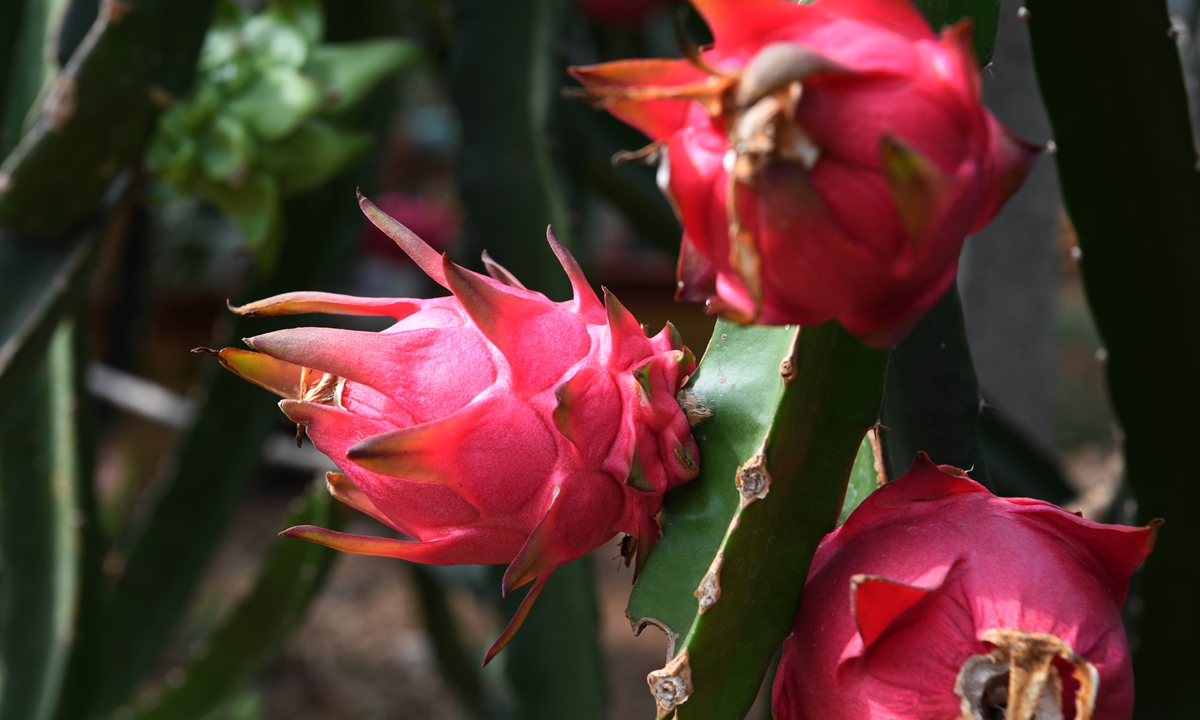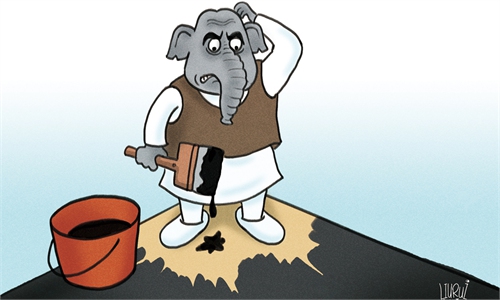Netizens mock Indian state govt for renaming dragon fruit to avoid 'association with China'

Dragon fruit. Photo: VCG
Chinese and foreign netizens are mocking an Indian state government's "very unnecessary" and "over-sensitive" decision to rename the dragon fruit as the original name "is associated with China." A typically derisive comment said, "This is the only thing they [the government] are capable enough to do."
"The state government has decided to rename the Dragon Fruit. As the outer shape of the fruit resembles a lotus, hence the Dragon Fruit shall be renamed as Kamalam," the Indian state of Gujarat's Chief Minister Vijay Rupani said on Tuesday, Indian news agency ANI reported.
"The name Dragon Fruit is associated with China and we have changed it," he added. "There is nothing political about it."
Gujarat is the home state of Prime Minister Narendra Modi. The word Kamalam is Sanskrit for lotus, which is the party symbol of the ruling Bharatiya Janata Party (BJP). It is also the name of the BJP office in Gujarat.
The development comes a few months after Modi praised farmers in a radio program for cultivating the dragon fruit in the arid region of Kutch in Gujarat, CNN reported.
Meanwhile, the announcement has drawn derision on social media.
"When I read such news, I want to slap on my own face," a netizen on tweeted,
Some ridiculed the decision by asking if there were plans to rename other fruits based on their shape, suggesting that peaches should be renamed "butts" as they are similar in appearance.
Another wrote,"Wow. Good to know what they are so preoccupied with."
"Priorities of a Chief Minister are set. He is doing a top notch job…," mocked another netizen.
Chinese netizens also laughed at the move. Many said the Chinese dragon is quite a different thing from the Western one.
Many simply commented with a "laugh to cry" emoji.
India and China are currently locked in a military standoff along their border after a bloody brawl between troops in June 2020.
Global Times

